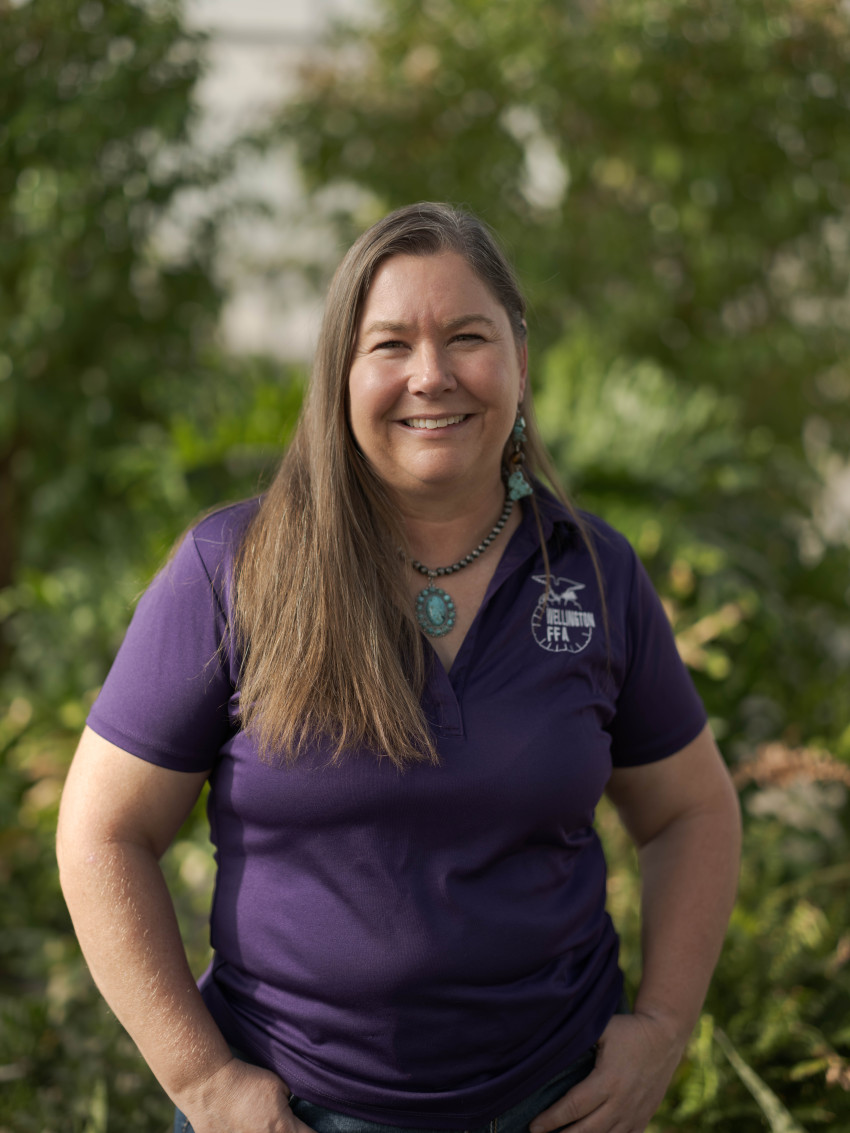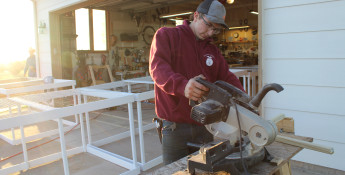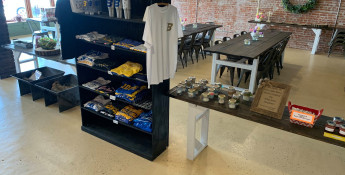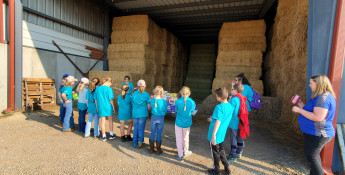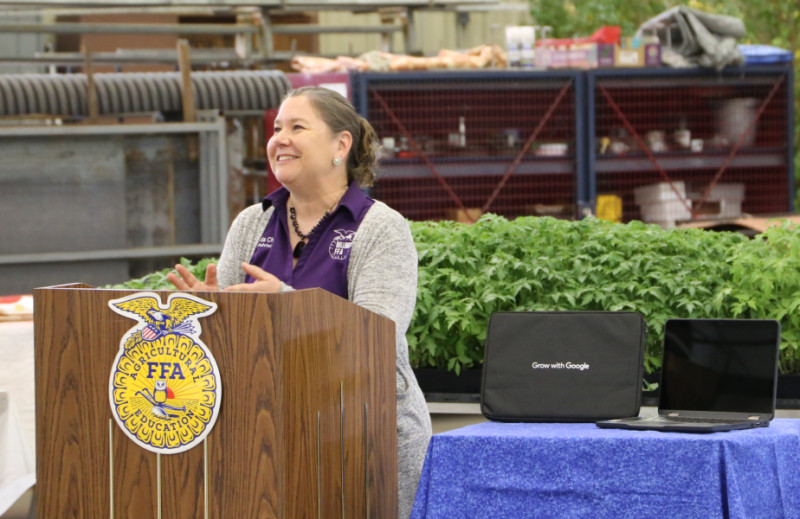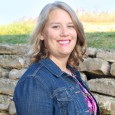By Meagan Cramer on August 3, 2023
Kansas Agriculture Educator Receives National Teaching Award
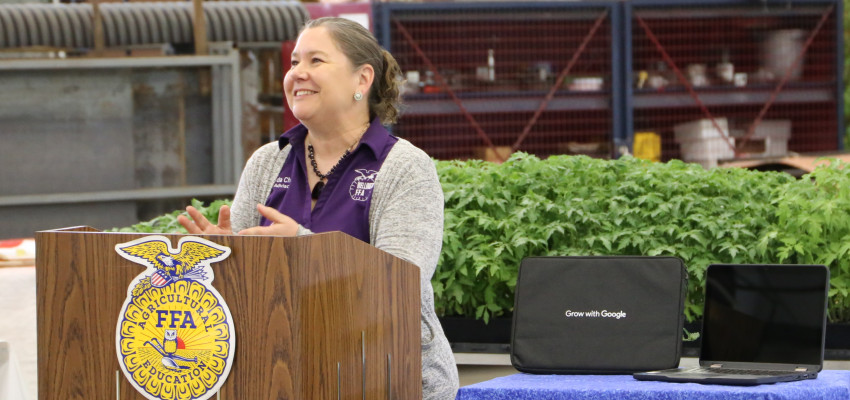
Linda Chase has always been ambitious, and she encourages her students at Wellington High School to push themselves, too. Chase teaches agriculture and is the FFA advisor. Both roles challenge her, which is one thing she likes about per position. Chase has had to prove herself time and time again.

During an early attempt to land a teaching position in western Kansas, one of her interviewers questioned her ability to weld. Although she was wearing a dress and had prepared for a formal job interview, Chase wasted no time proving her abilities.
“I was like, ‘Oh no, now you did it.’ I went out to the shop and found a jacket, gloves and a helmet,” she says.
None of the male candidates had to demonstrate their welding skills, but her skills and tenacity paid off. She was offered the job and says it was just one of several times she had to prove that she, and women in general, could be agriculture educators.
“I always push my students to do things that are outside of their comfort levels — to be leaders [and] take charge of things,” Chase says. “I'm always pushing them to try to be an FFA district officer, a chapter officer, a state officer. My feelings are, if I'm not willing to do it, then why should I expect them to do it?”
A FELLOW IN AGRICULTURAL EDUCATION
A recent national award is another testament to Chase’s ability and skills. She was named one of four Fellows by the American Farm Bureau Foundation for Agriculture. The Farm Bureau Foundation Fellows Program is a unique fellowship that allows educators in rural and agricultural regions to teach students where their food comes from using digital skills. Grow with Google, a program that aims to improve digital skills through training, tools and expertise, is a partner and supporter of the Fellows Program.
“We hope this program empowers teachers to introduce their students to the exciting world of agriculture, while also teaching them an array of technical skills,” Daniel Meloy, executive director of the American Farm Bureau Foundation for Agriculture, says.
Chase applied for the fellowship with encouragement from her daughter, Cassidy, who was preparing to start her freshman year at Cowley College, a community college in Arkansas City.
“I was completing a Grow with Google training in-service over the summer and Cassidy was looking over my shoulder throughout the training,” Chase says. “At the end of the in-service they said participants could apply for the fellowship, and Cassidy said, ‘You might as well.’”
Chase completed the application over the summer and soon forgot about it as she prepared for the new school year. In September she found out she was a finalist and after completing an interview process, she was notified she was one of four Fellows picked from across the nation. Over the course of the eight-month program, Linda and the three other Fellows developed place-based curriculum that incorporates agriculture, technology and key digital skills that were added to Google’s Applied Digital Skills lessons, a free, online curriculum from Google that uses video- and project-based learning to teach learners of various ages and levels basic digital skills.
“It’s been a great experience,” Chase says. “All four of us absolutely loved being able to brainstorm and learn from each other. The hardest part was when we would focus on things that were out of our wheelhouses like photos and voice-overs. They had to remind us we were teachers, and those other pieces would get taken care of by other people.”
Chase’s lesson focuses on celebrating local food events. In the sample lesson plan, she features the Kansas Wheat Festival, an annual event in Wellington.
“Each one of us got to do something related to our community, and when I was setting up my lesson, I thought, ‘The wheat festival is our thing.’ That’s what I want to promote because it will draw people from all over.”
The other lesson plans from the Fellows in North Carolina and Pennsylvania focus on careers, creating a pollinator garden and regenerative agriculture. All lessons are free to all educators.
“Our Foundation Fellows have done an outstanding job crafting these unique and engaging lessons,” Meloy says. “Whether you’re a teacher in a rural, urban or suburban classroom, these lessons can be used to teach a broad variety of technical skills while fostering understanding of agriculture.”
The four lesson plans can be accessed by going to bit.ly/fellows_lessonplans.
BREAKING DOWN BARRIERS
Besides sharing about her community’s wheat festival and celebrating agriculture, Chase plans to use her platform as a Fellow to ensure her students know they can be leaders and that women and girls continue to progress in agriculture and agriculture education. She’s encouraged by the changes she’s witnessed over the years.
“I started seeing other females interested in agriculture education, and it really became a big focus for me to try to get them to stay in agriculture, to continue building and working hard, and getting more females,” she says. “It's changed a lot in 25 years. When I started teaching there were four female ag teachers. Today it’s almost 50/50 and I'm glad they have the opportunities.”
Tatum Rountree, a senior at Wellington High School, says Chase’s love for agriculture and her students is one reason she felt comfortable transferring to Wellington from South Haven High School.
“Mrs. Chase has helped me recultivate my love for agriculture as well as the agricultural community,” Rountree says. “A large portion of what made me feel comfortable changing schools was knowing that an agriculture instructor who was devoted to her craft, as well as her FFA chapter, was waiting for me.”
Rountree is also the FFA chapter president and part of a nine-person officer team that’s all females.
“This year is first time I have an all-female officer team,” Chase says. “That’s something I was just like ‘Wow! That’s pretty cool!’”
CONTINUING TO GROW
In addition to helping the Fellows develop the curriculum, Chase received a stipend and Grow with Google provided 35 Chromebooks and accessories for Chase to use in her classroom. These are just added perks to a school district that knows they have a winner in Linda Chase.
“She’s an amazing teacher and her students are always engaged,” Adam Hatfield, USD 353 superintendent, says. “She’s been here for 13 years, and she continues to grow the ag program. In fact, we’ll be adding staff to keep up with the demands of our students.”
Spend a little time with Chase and it won’t take long to realize she is deeply invested in helping her students learn and push themselves to things they might have never imagined. And if you really want to get her help with something, tell her you bet she can’t do it.
To learn more about the Fellows and the fellowship program, go to www.agfoundation.org/projects/fellowship.

